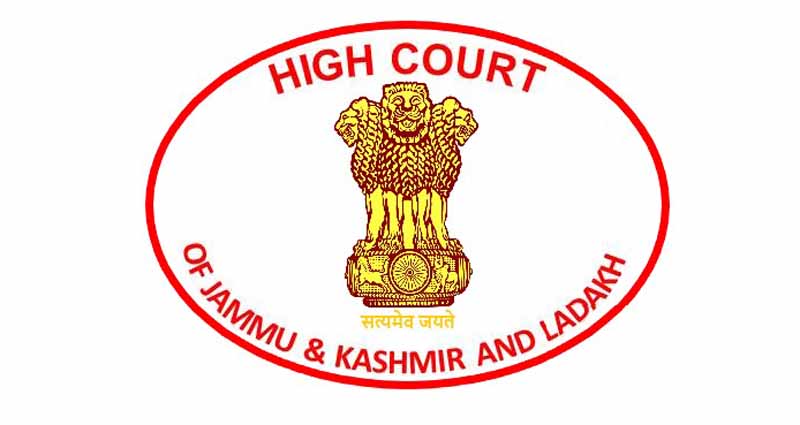‘Spoken words not sufficient to determine conduct’
Mohinder Verma
JAMMU, Dec 26: A Division Bench of High Court of Jammu & Kashmir and Ladakh comprising Justice Tashi Rabstan and Justice Rajesh Sekhri has held that without adverse entry in the Annual Performance Reports (APRs) reputation of a Government servant cannot be termed as doubtful and spoken words are not suffice to determine the conduct.
The DB made these observations while dismissing the Letters Patent Appeal (LPA) filed by Government against the judgment and order dated 02.07.2018 delivered by the Single Bench in case titled ‘Rashpal Ram Versus State of J&K and Another’.
The Single Judge, while allowing the writ petition, quashed the impugned order bearing No.1270-GAD of 2016 dated 21.11.2016 compulsorily retiring Rashpal Ram from service in public interest in exercise of powers under Article 226(2) of the Jammu and Kashmir Civil Services Regulations.
After hearing Additional Advocate General Raman Sharma for J&K Government through Commissioner Secretary, General Administration Department and Director, Food, Civil Supplies and Consumer Affairs Department and Advocate Amit Gupta for respondent (Rashpal Ram), the DB observed, “the purpose and object of premature retirement of a Government employee is to weed out the inefficient, the corrupt, the dishonest or the dead-wood from Government service”, adding “it is well settled that when an order is challenged as arbitrary or mala fide in the petition under Article 226 of the Constitution of India, it is the duty of the Government to provide documents for inspection of court”.
“Not only the employer is obliged to produce the materials, but the onus of establishing that the order was made in public interest is also on the employer. The Supreme Court has clearly held that it is a terminal step to justify which the onus is on administration nor a matter where the victim must make out the contrary”, the DB said.
The DB observed, “in the present case the Government has run roughshod over the writ petitioner by compulsorily retiring him from service as the decision seems to be based on no material, in as much as the relevant material including the APRs and other service record which was required to be placed before the committee for considering the case of the petitioner for compulsory retirement has either not been placed before the committee or has not been considered”.
Stating that committee should have considered the entire service record of the public servant available in the shape of APRs, service book and personal file giving the details of the complaints received against him from time to time and so on and so forth, the DB said, “it appears that the APRs of writ petitioner have not been taken into account by the respondents. This itself speaks volumes about the non application of mind by the Establishment Committee which apparently arrived at the conclusion without looking into the relevant record”.
Pointing towards the statement that ‘due to his persistent misconduct, the employee does not enjoy a good reputation in the public and the overall perception of the general public is that he is a corrupt and delinquent official’, the DB made it clear that in absence of any adverse entry in the APRs, the reputation of Government servant cannot be termed as doubtful, as projected, nor could his conduct be determined only on spoken words in the absence of any material on record”.
“This was the fundamental flaw in the order issued against the petitioner compulsory retiring him from service. It is abundantly clear that the decision to compulsorily retire the petitioner was taken only in view of the registration of FIR at Crime Branch, Jammu. But there is no whisper by the appellants about the fate of the so called FIR”, the DB said, adding “mere lodging of FIR cannot be the made the basis for compulsory retiring the writ petitioner from service”.
The DB further said that the practice followed by the Government in directing compulsory retirement of the writ petitioner was completely unwarranted because that would violate the basic maxim of ‘innocent until proved guilty’. “Thus, through the impugned order of compulsory retirement, the Government has applied this principle in the reverse and has exhibited its supineness”, the DB added.
Supreme Court has opined that annual character roll of the Government Servant would give an appropriately objective assessment of his integrity and job performance since adverse remarks on such rolls would be warning signs of the absence of such a person’s job integrity, the DB said while dismissing the appeal and upholding the judgment of Single Judge.


